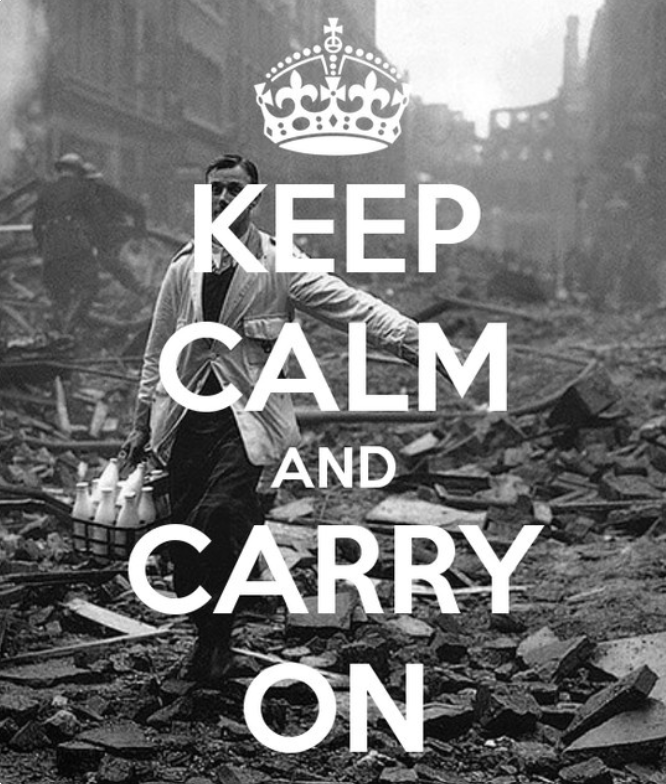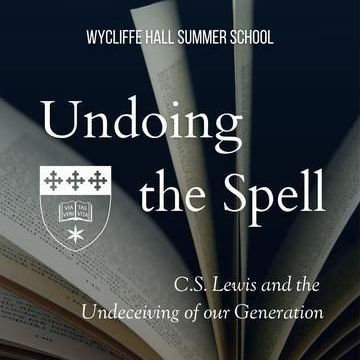It’s hard for us to get our head around quite how radical a thought Jesus' words would have been to his disciples.
The temple at Jerusalem was an incredibly large and imposing building. It was a feat of ancient engineering, finished under the oversight of Herod the Great shortly before Jesus was born. In real terms, the temple itself was about twice the size our church building or about the size of an NFL football field. That was the main temple building and the inner courts. However if you include the outer courts the whole temple campus, we’re talking about the size of 28 football fields. Well over a million square feet. It was big!
But the temple was not only large in size, but it was also large in significance: it was one of the corner- stones of the Jewish faith. The temple was the place where sacrifices laid out in the OT were to be offered: it was the very place where atonement for sin could be made. It was God’s house: it contained the holy of holies - the sacred space in which God himself dwelled and into which only the high priest would go only once a year on the Day of Atonement. The temple was the sacred center for the hustle and bustle of the various different annual feasts and festivals. It’s design was given by God himself and it stood in the tradition of the great and glorious years of the first temple built by Solomon, when Israel was at its most prosperous.
And the disciples hear that the temple is going to be razed to the ground. They were more likely to expect Jesus to speak of the destruction of the Romans who occupied Jerusalem or the fall of Rome. But instead he tells them it is their house that is going to fall, an event which actually happened
at the hands
of the Romans in 70AD.
It was a hard thing for them to hear. But while they might need to have heard "keep calm and carry on," the first message Jesus gives them
"keep calm and don’t be led astray."
Many will come in my name saying ‘I am he’ – but don’t believe them, don’t follow after them.
Jesus knew that in the tensions leading up to the fall of the temple many would try and lead a revolution against the Romans, they would attempt to re-establish God’s nation and remove the enemy threat. These people would claim God’s name, say they were doing God’s work. They would have convincing arguments from Scripture to back it up. They would say that the kingdom of God was going to be restored and Israel would be a great nation once again. Jesus knew such a promise of restoration would be a very real temptation for his disciples in the face of persecution, suffering and hard and costly work of living out the gospel. The lies of these pretenders would be convincing and persuasive.
“Keep calm and don’t be led astray.”
***
What the disciples were only beginning to get their head around was that the kingdom of God was no longer going to be tied to a specific place, temple or nation. That only happened with one land and it has not happened with any other since. The New Testament tells us the kingdom of God is tied to a people, the body of Christ, those who confess that Jesus Christ is Lord. That’s it. False messiahs would tempt the disciples to embed their faith within the political hopes for a renewed Israel, they would promise that now was the time of God's fulfilment, but Jesus warns them: do not follow after them. Do not believe the lies.
It’s an important message for us as Christians, even 2000 years later. We are sometimes tempted to be drawn into believing that our political or cultural views and values are Christian views. We begin to put our hope in man-made systems, as though they will fix all our world’s problems. They won’t! Unless our hope is founded on God in Jesus Christ, we will never be fully satisfied.
It has been interesting, and sometimes disturbing, for me to observe my fellow Brits’ response to the Brexit referendum in the UK this year. It has resulted in some very real vehemence and animosity. There has been a spread of articles on social media that label and demean those who think differently from one another. Far worse, there has been a horrible rise in hate crimes and racist attacks that are an affront to the dignity and humanity of every person.
People have been drawn into disputes that demonise and alienate those on the other side of the politicla aisle. But whatever an individual’s political position, staying or leaving will not satisfy and will not solve the root issues. Many of my friends who voted against leaving the European Union did so because they saw it as a rejection of the peace-alliance established after World War II. For them, the EU stood as a powerful emblem of unity after the tragedies of the first half of the 20th century and so they see leaving as throwing out that security and stability and rejecting our closest neighbours. A recipe for disaster and for future conflict. My friends who voted to leave wanted to do so because they felt so disaffected by the increasing powers of European politics and see them as to blame for many of the cultural problems in the UK and want a return to the realities of yester-year and a lifestyle that they no longer have. They want to undo the socio-political changes of recent decades and turn back the clock to, in their view, a better age.
But the truth is that neither staying nor leaving ensures lasting peace or security. Sin prevails at an individual level, at a national and international one. Wars will continue until the end of days: the EU will not stop the human condition which seeks power and military conflict. And uncertainty and change is an intrinsic part of creation: leaving the EU will not turn back the clock. We can't live in the past, no matter how much we might want to. Things change. So we give our trust to these systems at our peril. They will not save, they do not save and they cannot save.
***
I read recently read an article from a Christian organization, that speaks to the temptation to make an idol out of the strength and power we so often see in the institutions around us – and to even say they founded in God’s name. Rachel Asproth says this:
Christianity has often found itself on the wrong side of privilege. Historically, we have sided with empire too often to call it coincidence. But why?
It’s the oldest story in the Good Book. We want to rule—desperately. We have drunk greedily from the fountain of power since the beginning of time.
We went after power when we fell in the Garden of Eden. Satan offered Jesus the chance to rule over the kingdoms of earth in exchange for his worship. James and John asked Jesus for seats at his right and left hands.
Humans crave privilege. We side with empire because we want to rule. And the human instinct for empire gave birth to the oppression of women, to the subordination of people of color, to the demonizing of the “other.”
The powerful find great security in their privilege.
It was this weakness that Satan himself sought to exploit when he offered Jesus an earthly empire in exchange for his everlasting kingdom.
Jesus rejected the human instinct for empire.
He chose not to rule.
Clearly, Jesus knew all about the human instinct for empire. He also knew a simple but profound truth: all empires fall.
So will ours.
The kingdom triumphs because it is no empire. It is built on equal measures of justice and mercy. It is ruled by a God who bleeds because his love is too big.[1]
***
The temptation for the disciples is the same one we face: we want power. We want control. We want to be in charge of our salvation.
But our God is not a god of empire, of power or of political systems. He is not a God who rules his people with a sword. Our God is a god revealed in Jesus Christ. One who emptied himself and gave up equality with God in order to lower himself to our level. A God who is known through brokenness and suffering. A God of the cross, put to death by Roman authorities. One who chose the path of vulnerability and marginalization for our sakes. One whose heart breaks in love for those who find themselves caught up and bruised in the machinations of this world.
There is no such thing as a Christian nation or political party. There are only Christian people. People who have come to know this God of the Cross who died and rose again for our sakes. People who are willing to embrace their own humanity and suffering in order to bring light and life to those around them. People who can own their sin, seek repentance and live into the forgiveness and life offered to them in the gospel.
“Keep calm and do not be led astray.”
***
Calamity was coming to Jerusalem and to its temple. It would strike fear in the hearts of the disciples. There would be many who would offer false promises of hope and revolution. Of change and a renewed sense of security. But Jesus tells them “do not be deceived – do not follow after them.” The coming false prophets do not represent God’s kingdom. For God’s kingdom is not one of power and aggression, of control and domination, but of sacrificial love that takes the form of vulnerability and humiliation. God’s kingdom forgives, reconciles and restores.
Whatever our backgrounds, gender, race, sexual orientation, or political preferences, Jesus’ call to each and everyone of us is the same.
“Take up your cross daily and follow me.” Do not buy the message of the world that lasting salvation can be found anywhere but through the death and resurrection of Jesus Christ. Do not make an idol out of any human, institution or ideology. [How do you know if you have done so? If you find yourself in wholesale, uncritical agreement with any one of these things and cease having a voice of your own.]
Do not believe the message of false prophets who preach a message of power and strength. The entrance into God’s kingdom is found in one place and one place alone. The Cross of Christ. There is no other way.
“Keep calm and do not be led astray.”
******
[1] https://www.cbeinternational.org/resource/feminists-take-cross-justice-over-empire/
Cover photo by
Phil Hearing on
Unsplash




